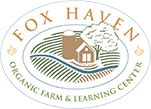
Welcome to the Wilderness: Shelter
“Everything needs to have multiple purposes. A brightly colored jacket will keep you warm and dry, but also be visible if you’re lost in the woods and need help. Y’all smell the BBQ I’m cooking?”
It was our first day of a new Fox Haven series, Welcome to the Wilderness. We were all rapt by our instructor, Jason Drevenak, a wild-haired, beer-loving outdoorsman whose teaching style included entertaining vignettes punctuated by encouraging proclamations like, “you got it, B!”
Jason, aka Drev, was here to teach about the five wilderness fundamentals: Fundamental 5: shelter, fire, water, food, and navigation/signaling. One out of five wasn’t bad, I guess: As an experienced forager, I have good knowledge of edible plants and fungi, but was otherwise fairly useless in the wild. On camping trips, I defer to friends when it comes time to build a fire, and the only way I know north was by looking at my orientation on Google maps.
I’m not alone: most of us will go our whole lives without needing to build a shelter, procure clean water or identify food, comfortably reliant on the useful technologies and divisions of labor afforded by modern society. Learning the basic skills that our species was built on helps develop a connection to and appreciation for our ancestors and our environment. Having a chance to learn from someone like Drev, a self-proclaimed Bushcrafter who has dedicated his life to honing and sharing these skills and knowledge, was a special treat indeed.
 Our session started by breaking down the basic functions of a shelter: to stay warm and dry, while also keeping key supplies like wood dry too. Elementary, but important to remember the basic requirements when we would get to things like site selection of our shelter.
Our session started by breaking down the basic functions of a shelter: to stay warm and dry, while also keeping key supplies like wood dry too. Elementary, but important to remember the basic requirements when we would get to things like site selection of our shelter.
Drev also gave us an introduction to “cutting tools,” with a nod to the world’s oldest known cutting tool, broken rock used to separate matter found in the Olduvai Gorge. “I’ve been making knives since I was six, and that was 46 years ago. I’ve made about 2,500 knives since then,” Drev said, inviting us to practice safely passing some of his beautiful craft with walnut-polished fallow deer antler handles and hand-hewn blades. We passed them around ceremoniously in our semicircle, blade pointing to the giver, with explicit consent from the recipient.
Drev encouraged us to choose a cutting tool as “everyday carry,” with the well-founded rationale it was better to have and not need, than to need and not have something like a knife. Indeed, much of what he taught was risk management and mitigation, differentiating between unavoidable emergency situations and those caused by hubris, calling out Aron Ralston, who had to saw off his own arm in a canyoning accident after failing to inform anyone of his plans or having a way to call for help. Drev was not about glorifying any edgy recklessness of wilderness exploration or “stroking the big egos of white men” like himself, in his own words.
 Our instructor also wasn’t about promoting ideals of individualism so much as the practicalities of interdependence. Drev encouraged us to get in small groups to undertake our shelter-
Our instructor also wasn’t about promoting ideals of individualism so much as the practicalities of interdependence. Drev encouraged us to get in small groups to undertake our shelter- making – in part “to remember what it’s like to reconnect as human beings” in these strange disconnected times. Indeed, many of our simple tasks were easier with the help of a partner: slicing open garbage bags and taping them together, seeking out fallen walnuts to use as “ghost grommets” and helping each other remember how to fashion the taut-line hitch we used to secure our cordage between trees.
making – in part “to remember what it’s like to reconnect as human beings” in these strange disconnected times. Indeed, many of our simple tasks were easier with the help of a partner: slicing open garbage bags and taping them together, seeking out fallen walnuts to use as “ghost grommets” and helping each other remember how to fashion the taut-line hitch we used to secure our cordage between trees.
Our humble emergency shelter wasn’t something I’d sign up to pass a night in, but with a big storm about to roll in, it was good enough to potentially fend off hypothermia in cold, wet weather. It certainly made me appreciate all the more the warm, comfortable dwelling I would come home to at the end of our long, chilly afternoon of learning together.


Written by April Thompson, @prillytee on Instagram
April Thompson is a Washington, DC-based writer, gardener, foodie, and forager. Working as a freelance writer for more than 20 years, April has covered food, travel, sustainability, gardening, foraging, and other subjects for dozens of publications, including her ongoing column in Natural Awakenings magazine. She has taught workshops on wild edible plants, fighting food waste, and related topics for Knowledge Commons DC, Rooting DC, and other organizations. She is a founding member of the Bruce Monroe Community Garden, a board member of the Mycological Association of Washington, and an alum of the UDC Master Gardener program. She currently serves as Director of Marketing and Sales for Bloom, a recycled biosolids fertilizer developed by DC Water.

Where there is a will, there is a way.